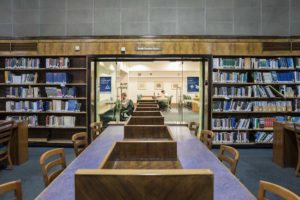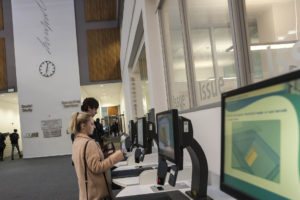How you'll learn
Theoretical teaching on the programme is employed via a combination of blended learning approaches, such as problem-based learning (PBL), research skills development, personal development and wellbeing, communication skills, and flipped classrooms, all of which are supported by lectures. Practical teaching approaches include peer observation and assist, management of medical emergencies, attendance to the human anatomy resource centre, placements in primary and secondary care, simulated patients, and the supervised treatment of patients on clinic.
The School is at the forefront of technology enhanced learning. We use virtual learning environments to support small group and didactic learning, a digital feedback platform, and simulation of restorative and surgical techniques to provide our students with the best possible experience, whilst preparing them for the technological developments that will shape their future careers in healthcare.
We value the personal and professional development of our student colleagues. Each student is assigned an Academic Advisor to support their leadership development, self-reflection skills and their ability to set achievable goals. Students have the opportunity to stand for election to leadership roles within the School and to work with the Staff Student Liaison Committee to ensure the voice of the student is heard and to work with teaching colleagues to inform positive change. The School has a novel personal development and wellbeing module to further support this learning.
Many of our staff have received awards in recognition of our approach to teaching.
How you're assessed
The curriculum is built on milestones, which build in complexity each year. Students are assessed based on the milestones for that year of study, which spirally build on the knowledge they have gained in previous years.
The assessment strategy for the academic components of the programme adopts a varied approach including: Multi-response format; Constructed Answer; and OSCE (Observed Structured Clinical Examination).
All summative assessments are preceded by formative assessments, after which you will receive detailed feedback. With regards to clinical activity, students must pass an assessment of basic clinical competence before being allowed to use these newly acquired skills on a patient. From this point clinical activity is continually monitored using a computerised data gathering tool. Outreach reports are also used to contextualise clinical monitoring. An important aspect of these assessments is their integrated nature, and their use in multiple clinics. This latter point is crucial to the fairness and robustness of the assessments.
Furthermore, the system ensures that all Liverpool graduates are in the advantageous position of being able to take their activity portfolio into the work place to aid their ongoing development. We use technology to facilitate online marking and feedback of assignments, deliver online tests, and collate and deliver OSCE data, providing students with more useful feedback as a result.
Liverpool Hallmarks
We have a distinctive approach to education, the Liverpool Curriculum Framework, which focuses on research-connected teaching, active learning, and authentic assessment to ensure our students graduate as digitally fluent and confident global citizens.
The Liverpool Curriculum framework sets out our distinctive approach to education. Our teaching staff support our students to develop academic knowledge, skills, and understanding alongside our graduate attributes:
- Digital fluency
- Confidence
- Global citizenship
Our curriculum is characterised by the three Liverpool Hallmarks:
- Research-connected teaching
- Active learning
- Authentic assessment
All this is underpinned by our core value of inclusivity and commitment to providing a curriculum that is accessible to all students.







